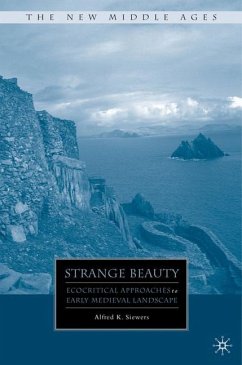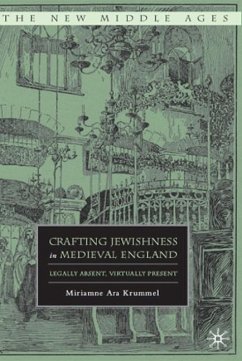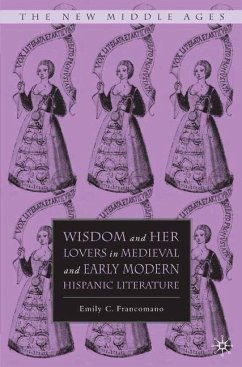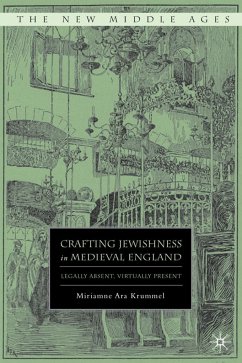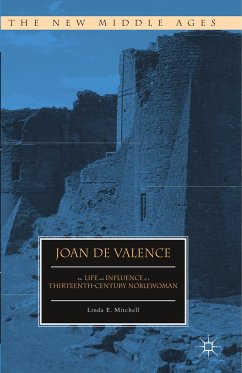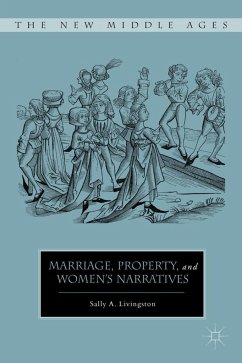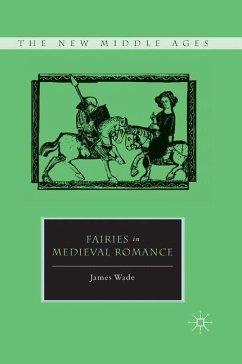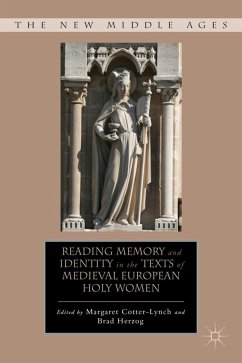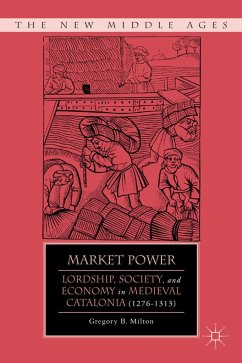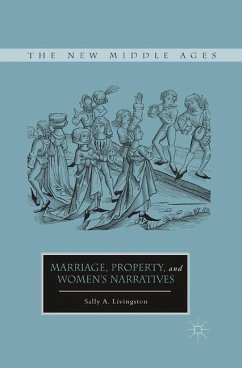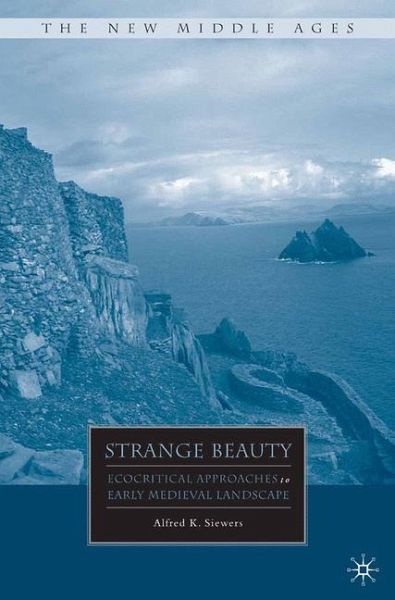
Versandkostenfrei!
Versandfertig in 6-10 Tagen
Weitere Ausgaben:

PAYBACK Punkte
46 °P sammeln!





Strange Beauty provides a new perspective on early Celtic stories of the Otherworld and their relevance to today's ecological concerns, arguing for a contemporary re-reading of the Otherworld trope in relation to physical experience.
ALFRED K. SIEWERS is Assistant Professor, Medieval Literature, Bucknell University, USA.
Produktdetails
- The New Middle Ages
- Verlag: Palgrave Macmillan / Palgrave Macmillan US / Springer Palgrave Macmillan
- Artikelnr. des Verlages: 978-1-349-37397-0
- 1st ed. 2009
- Seitenzahl: 240
- Erscheinungstermin: 12. Oktober 2009
- Englisch
- Abmessung: 235mm x 155mm x 14mm
- Gewicht: 370g
- ISBN-13: 9781349373970
- ISBN-10: 1349373974
- Artikelnr.: 45581202
Herstellerkennzeichnung
Palgrave Macmillan
Tiergartenstr. 17
69121 Heidelberg
ProductSafety@springernature.com
"In Strange Beauty, Alfred Siewers contributes to a growing continuum of environmental readings of British literature . . . Impressive in the depth of his research and reading, Siewers sets a high standard for future ecocritical studies of medieval literature." - Interdisciplinary Studies in Literature and the Environment
"Strange Beauty is an outstanding addition to medieval cultural studies. The volume combines philological rigor, meticulous research, an engaging writing style, a fascinating set of questions, and a theory-savvy, innovative line of research. Siewers' book will put environmental approaches to medieval literature and culture on the critical agenda. The geographic and temporal dynamism that it allows its texts is
"Strange Beauty is an outstanding addition to medieval cultural studies. The volume combines philological rigor, meticulous research, an engaging writing style, a fascinating set of questions, and a theory-savvy, innovative line of research. Siewers' book will put environmental approaches to medieval literature and culture on the critical agenda. The geographic and temporal dynamism that it allows its texts is
Mehr anzeigen
inspirational. Well-chosen as well is the emphasis upon the Otherworld, the perfect imagined geography through which to think the project s cluster of questions. Strange Beauty is, in a word, brilliant." - Jeffrey J. Cohen, Professor and Chairof English, and Director, Medieval and Early Modern Studies Institute, George Washington University
"I learned a great deal from Siewers analysis of the phenomenology and ideology of place in Beowulf and in medieval Celtic environmental imagination. Strange Beauty is a subtle and erudite book." - Lawrence Buell, Department of English, Harvard University and author of The Environmental Imagination and The Future of Environmental Criticism
"Siewers examines the inner and outer worlds of medieval Ireland and Britain with inspired sensitivity, wide-ranging learning, and a penetrating attention to detail. His ecocritical perspective and his deep engagement with the insights of ascetic spirituality, enable him to interrogate the material in new and exciting ways. The result is a book rich in ideas, which finds in the ancient texts a vision, and a wisdom, which can speak to the predicaments of our own time." - John Carey, Department of Early and Medieval Irish, National University of Ireland, Cork
"In the course of setting forth his multi-faceted argument, Siewers demonstrates scholarly honesty and integrity at every turn . . . his main contributions lie less in the scholarly analysis of Celtic texts than in the elaborate and intellectually adventurous ways in which he finds analogues for their textual workings in modern theory, suggesting thereby the relevance of early Irish culture to today's sophisticated ecophilosophical thought." - The Medieval Review
"I learned a great deal from Siewers analysis of the phenomenology and ideology of place in Beowulf and in medieval Celtic environmental imagination. Strange Beauty is a subtle and erudite book." - Lawrence Buell, Department of English, Harvard University and author of The Environmental Imagination and The Future of Environmental Criticism
"Siewers examines the inner and outer worlds of medieval Ireland and Britain with inspired sensitivity, wide-ranging learning, and a penetrating attention to detail. His ecocritical perspective and his deep engagement with the insights of ascetic spirituality, enable him to interrogate the material in new and exciting ways. The result is a book rich in ideas, which finds in the ancient texts a vision, and a wisdom, which can speak to the predicaments of our own time." - John Carey, Department of Early and Medieval Irish, National University of Ireland, Cork
"In the course of setting forth his multi-faceted argument, Siewers demonstrates scholarly honesty and integrity at every turn . . . his main contributions lie less in the scholarly analysis of Celtic texts than in the elaborate and intellectually adventurous ways in which he finds analogues for their textual workings in modern theory, suggesting thereby the relevance of early Irish culture to today's sophisticated ecophilosophical thought." - The Medieval Review
Schließen
Für dieses Produkt wurde noch keine Bewertung abgegeben. Wir würden uns sehr freuen, wenn du die erste Bewertung schreibst!
Eine Bewertung schreiben
Eine Bewertung schreiben
Andere Kunden interessierten sich für




